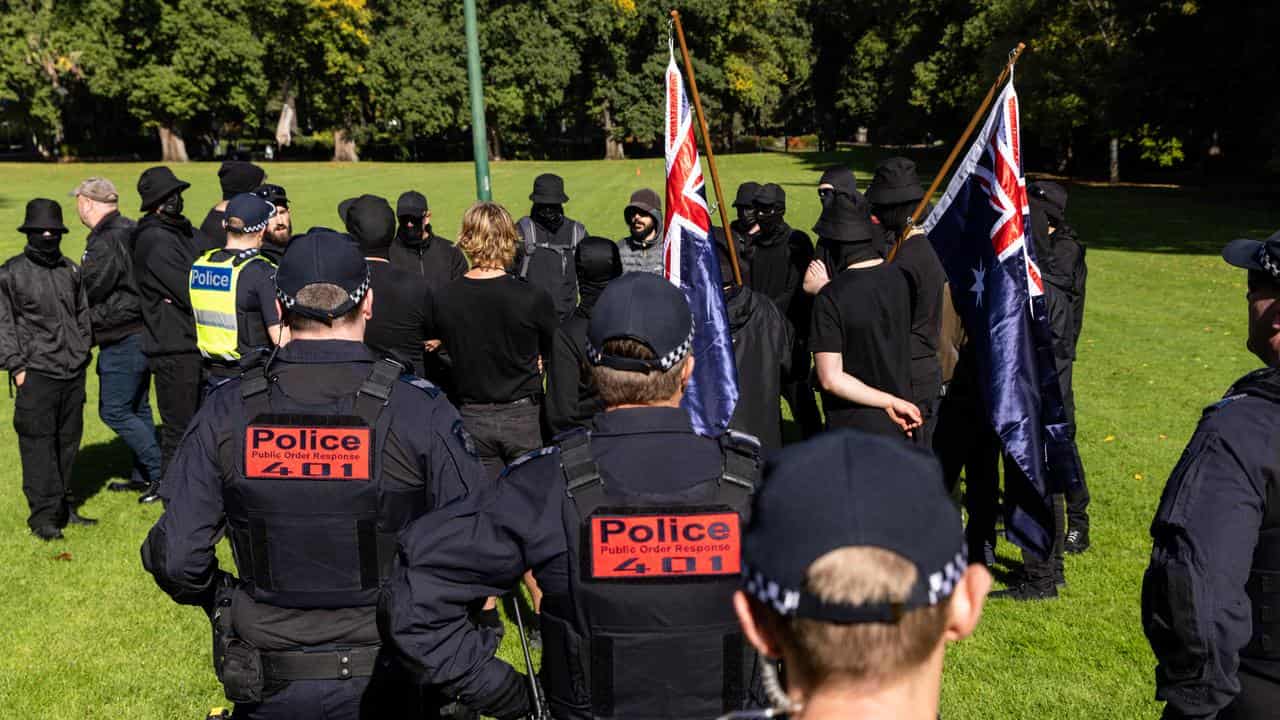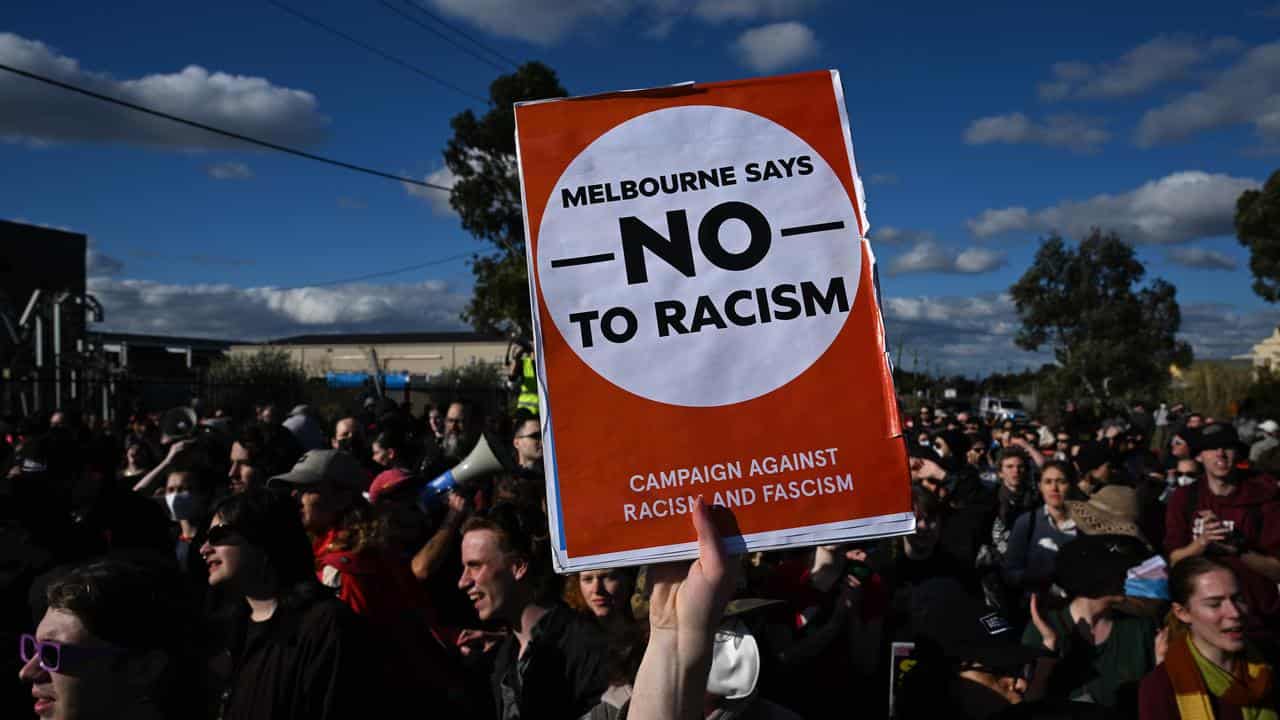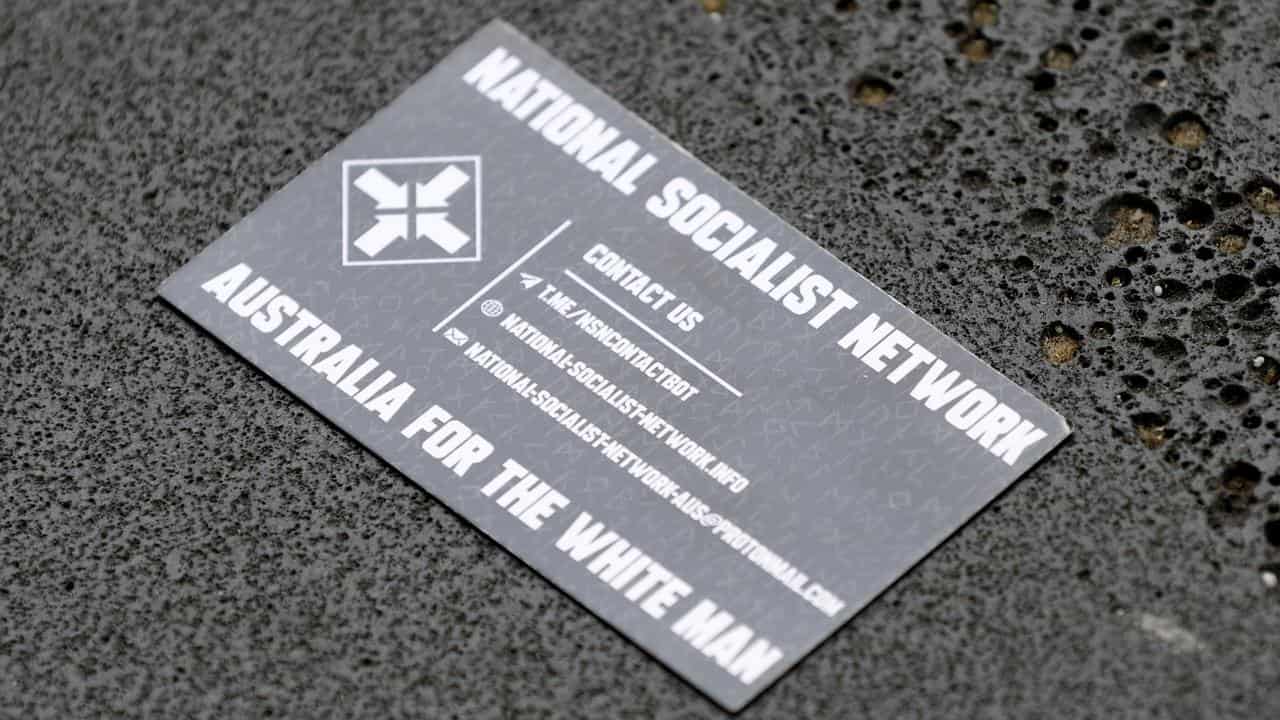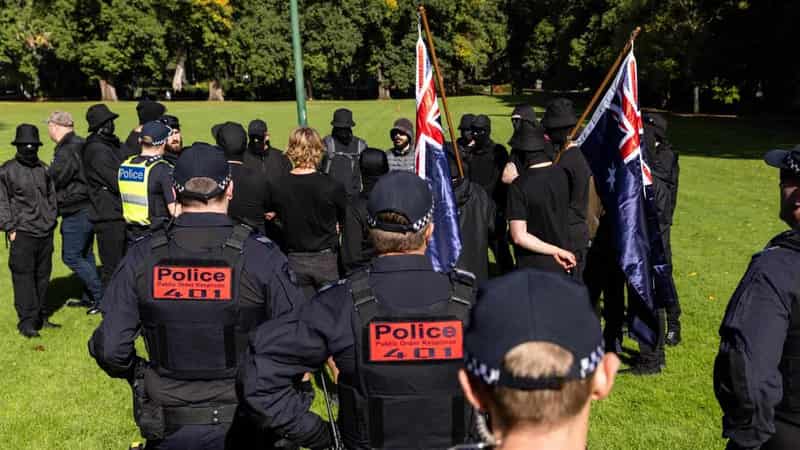
There are warnings far-right extremism is accelerating across Australia as experts lobby for a national, independent hate-crime database to paint a clearer picture of the threat the nation is facing.
The matter was discussed during a Senate, Legal and Constitutional Affairs References Committee hearing on Monday.
The committee, led by Senator Paul Scarr, is probing right-wing extremist movements in Australia and what can be done to counteract them.
Among the issues raised were toxic masculinity breeding right-wing group membership as well as growing antisemitism and the urgent need for a transparent and unbiased hate-crime database.
Australia does not have a national database or set definitions for hate-crimes and instead relies on not-for-profit organisations or volunteers.

As a result, it means data collection across states and territories don’t have similar methodologies which makes it difficult to identify what exactly is happening around the country,
Larry Stillman, speaking on behalf of the Australian Jewish Democratic Society, said the way data was collected could serve the political agenda of the organisation collecting the information.
He called for the process to be handed over to an unbiased source that could collect all data transparently.
Executive Council of Australian Jewry chief executive Peter Wertheim said his organisation supported calls for a uniform national system, despite being proud of its own data collection methods.
“At the moment, it's different state by state, the criteria varies and the methodology differs” he said.

Australia stood out as being one of the few countries without a national system while nations like Canada, the UK and the United States had successful systems that collect hate-motivated crime data.
Earlier on Monday, speakers from the Centre for Resilient and Inclusive Societies said it was important to get the community involved in identifying those being lured towards right-wing ideologies.
They suggested providing teachers and other educators with tools to identify alarming behaviours and other red flags to look out for.
Michele Grossman said far-right extremism had accelerated across Australia, enabled by digitally based social, operational and financial economy activities.
"Many forms of extremist groups in Australia are now more fluid and dynamic in structure than previous similar organisations," Professor Grossman said.
""If we are to keep pace with the risks and threats that they pose ... there needs to be new thinking and adjustment of our understanding of the social impacts of far-right extremism."
The public hearings continue.









